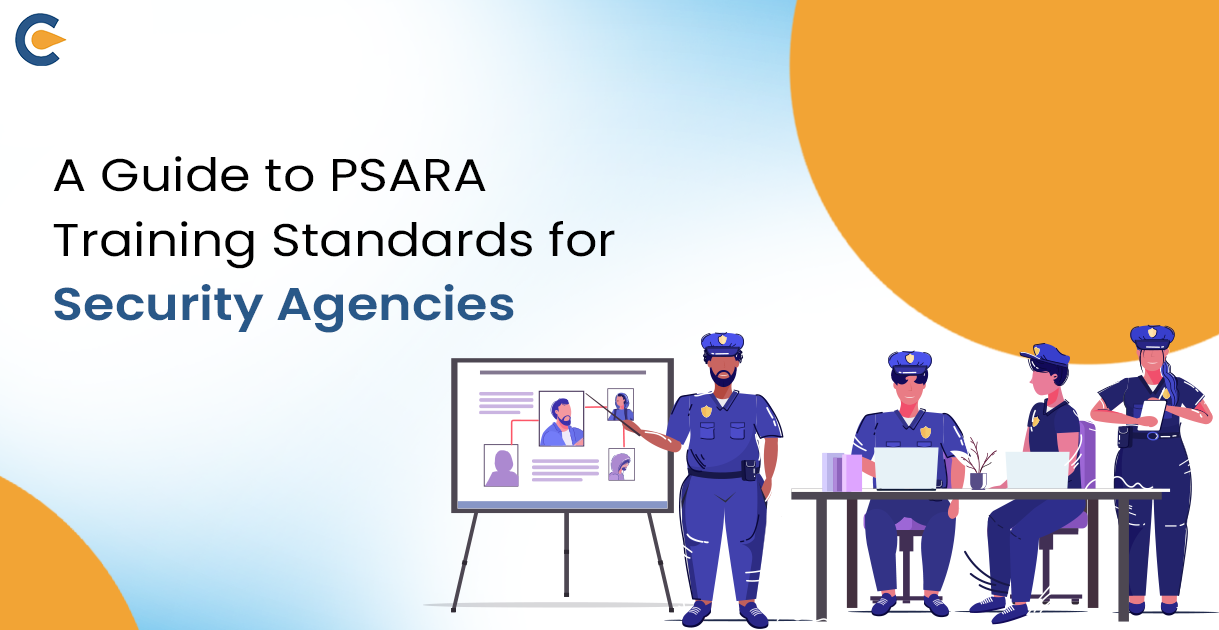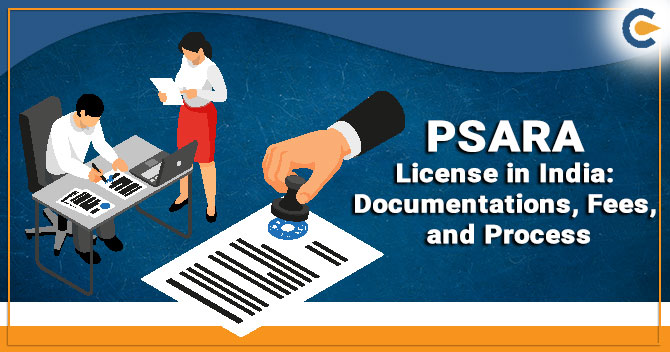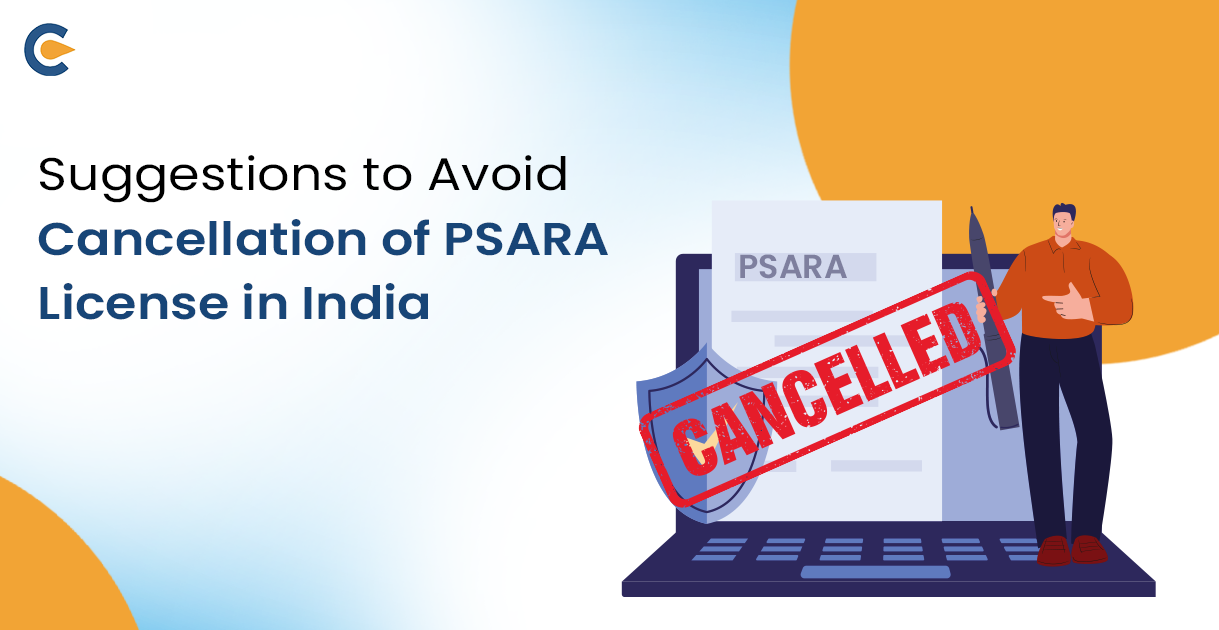The safety and security of the assets of clients and lives rest on the shoulders of private security guards. To ensure their fitness, regulatory bodies have set specific physical fitness PSARA training standards that security guards must adhere to under the Private Security Agencies Regulation Act (PSARA) and its associated Rules. The PSARA training standards serve as a benchmark for evaluating the overall physical capabilities of security personnel, enabling private security agencies to deploy guards who are fit, agile, and well-prepared to handle the diverse challenges of the security landscape.
In this blog, we shall learn about PSARA legal compliances applicable to Security Agencies in relation to the process of screening, recruitment, training, and regulation of the conduct of security guards and other personnel engaged in the security industry that these agencies train. We would explore the fitness and physique requirements, background verification, and police clearance requirements, as well as the importance of having a thorough compliance structure in place for the staff recruited by these agencies.
Significance of PSARA Legal Compliances
It is important to understand the significance of PSARA Legal Compliance as in light of the growing worries and difficulties related to security that both individuals and organizations face, private security firms are increasingly essential in protecting their assets and properties in a way that is both more effective and economical than anticipated. Private security guards are among its front-line defenders; they are tasked with keeping their clients’ environments safe and secure. For this reason, it is essential that these guards are in good physical condition and ready to do all duties that are delegated to them. Also, the security guards being trained and deployed by the security agency mustn’t have any criminal background or any antecedents of any proceedings, background, or history of any disciplinary actions by any past employer or enforcement authorities. The security personnel should also be medically fit and cleared for service by a registered medical practitioner.
PSARA Training Standards for Security Guards
Any person willing to associate with a security agency in the capacity of security personnel should undergo PSARA training standards for security guards. The PSARA Model Rules, 2020 prescribe that such a person shall procure a valid license issued by the Controlling Authority after having completed a mandatory six-day training period on the crucial subject of security and defence such as VIP security, internal security, disaster management, document inspection and frisking, firefighting, uniform and identity, liaison with police and another government departments, etc.
Physical Requirements
Meeting specific physical fitness requirements is one of the qualifying requirements for hiring or involving security guards. Upholding PSARA training standards for security guards is crucial in guaranteeing that security staff can perform their jobs as effectively and efficiently as possible. These requirements cover a wide range of physical characteristics, guaranteeing that security officers have the skills to manage the challenges they face while discharging their duties. The following are the primary physical fitness criteria for both male and female private security guards, as per regulation 9 of the PSARA Central Model Rules, 2020:
- Height: 160 cm (Female 150 cm) with weight according to the standard height and weight table.
- Chest: 80 cm with an expansion of 4 cm (no minimum requirement for females).
- Eye Sight: Farsighted vision 6/6, near vision 0.6/0.6 with or without correction, free from colour blindness, and able to identify and distinguish colours in security equipment displays. They should also be able to read and understand English alphabets and Arabic numerals.
- Physical Condition: Free from knocked knees and flat feet, capable of running one kilometre in six minutes.
- Hearing: Free from defects, able to hear and respond to spoken voices and alarms generated by security equipment.
- Dexterity and Strength: Possessing the necessary dexterity and strength to conduct searches, handle objects, and use force for restraining individuals when needed.
Security Training
The private security guards engaged by the security agency are required to undergo rigorous security training and endurance building regime, as framed by the Controlling Authority of Security agencies in the state and in accordance with the National Skill Qualification Framework. The field and theoretical training shall be of at least 160 hours spread over 20 days. Ex-servicemen from the Police and Defence forces are given a relaxation in the training programme. As per the requirements under PSARA legal compliances, the private security guards and personnel have to undergo training on aspects such as physical fitness, formal attire presentation, firefighting, crowd control, paperwork and document verification, ability to read and understand English, first-aid and CPR, disaster management, advanced driving, use and identification of arms and ammunition, basic knowledge of laws and regulations and use of safety equipment’s like a fire alarm, water hydrant, water sprinkler etc.
Periodic Examination of Security Guards
Every security guard is required to get a periodic physical examination every twelve months following their last assessment, in addition to the initial evaluation as per the PSARA guidelines and PSARA training standards. By doing this routine assessment, it is ensured that guards maintain the required physical criteria for their position. Regular health check-ups enable early detection of any health issues, thereby keeping guards in ideal physical condition to perform their jobs with efficiency and expertise. Security guards who put their health and fitness first will be better equipped to handle any security issues that may come up and give the best possible protection for the people and property they are responsible for guarding or supervising.
Provisions for Supervisors
As per the rules, there should be at least one supervisor for not more than 15 private security guards. If, due to any delegacy of work or responsibility, any supervisor has been assigned work on different premises, the security agency shall depute additional supervisors so that the number of private security guards being overseen by one supervisor does not exceed six as per the requirements of PSARA legal compliances.
Why PSARA Legal Compliances are Necessary?
PSARA legal compliances are necessary for maintaining high physical fitness standards for security guards is not a mere legal formality; instead, it serves as the backbone of a robust and reliable private security agency. PSARA Legal compliance and PSARA training standards ensures the quality of security agencies and the security personnel trained and deployed by these agencies. The importance of ensuring that security personnel meet rigorous fitness criteria cannot be overstated, as it directly impacts the overall effectiveness and credibility of the security services offered. The private security guard is required to undergo mandatory training and conditioning before being declared fit for duty by the Controlling Authority, before being given a license of
Consequences for non-compliance with PSARA Training Standards
There can be some severe consequences for non-compliance with PSARA training standards. Private security companies risk serious legal repercussions if they fail to maintain fitness standards for their security staff. Failure to comply with fitness criteria could be interpreted as negligence in the event of security breaches or major incidents, putting the agency under increased legal obligation and scrutiny. Courts and regulatory bodies frequently evaluate compliance with industry standards; in the event that fitness requirements are not met, there may be severe legal consequences, including penalties and harm to the agency’s reputation. Agencies ensuring that private security guards fulfil the required fitness criteria is necessary for efficient security and a mitigative step to reduce the agency’s or the security personnel’s risk of legal trouble.
Conclusion
Security agencies and the personnel trained by them play an essential role in the security and safekeeping of almost all organizations as well as government institutions. PSARA legal compliances and PSARA training standards are crucial parameters that requirecareful consideration by the security agencies that hire and train private security guards. These security agencies should ensure that the security guards and personnel engaged by these agencies are physically and mentally competent to discharge the duties of security and defence of these premises of their clients as per PSARA training standards. The Government has laid down a framework for mandatory training and education for these security guards and authorized controlling authorities to regulate the conduct of security agencies and the guards associated with them. Corpbiz is a leading licensing and advisory service provider with years of experience in helping corporates fulfil statutory compliance requirements. With Corpbiz, you can be assured of smooth and seamless processing of PSARA licenses for your security agency.
Frequently Asked Questions (FAQs)
- What is PSARA?
PSARA stands for Private Security Agencies (Regulation) Act, 2009. The law governs the functioning and licensing of Security Agencies in the Country.
- What are the PSARA training standards?
PSARA training standards are the physical and mental aptitude capabilities that security guards are required to attain through training provided by security agencies in order to be declared fit for service by the regulatory authority. It is a necessary PSARA Legal Compliance for both security agencies and guards.
- Who is eligible to make a PSARA license application?
Anyone who wants to work as a private security guard and has undergone the necessary training per PSARA guidelines is eligible to apply for a PSARA license.
- Can a Foreign Company or Non-Resident Individual apply for a PSARA License?
No, if any company or firm or an association of firm is registered outside India, it or he/she cannot apply for a PSARA License. Only Indian residents and Companies incorporated in India are allowed to use for a PSARA license.
- In how much time is the license required to be renewed?
The Act has stated that every agency shall file an application for renewal before 45 days from the date of expiry of the PSARA License.
- Who is the Apex body that Governs Security Agencies and Private Security Guards under the Act?
The State Government of each respective state designates an authority not below the rank of a Joint Secretary of the State as the state's Apex Controlling body of Security Agencies.
- What is the validity of a PSARA License?
A PSARA Linces remains valid for a period of five years from the issue, after which it has to be renewed.
- What are the labour and social security registrations mandatory beforehand in order to make a PSARA license application?
An Agency must obtain valid registration under social security schemes such as ESI, Provident Fund, Gratuity, Maternity Benefit, Factories, and Shops, and Establishment Act are some of the labour and employment compliances which are necessary to be followed in order to apply for a PSARA License.
- Is Police certification of the agency as well as the directors/owner of the company mandatory?
Yes, it is required that the applicant provide police verification upon filing an application for a new license or a renewal with the Controlling Authority. The applicant must also enclose Form-I for the purpose of verifying their background. Every proprietor, majority shareholder, partner, and director must complete a separate Form-1 if a business, partnership firm, or other organization of individuals submit the application.
- What is the validity of a Police Verification for antecedents?
The character certificate and antecedents report are valid for a period of 5 years from the date of issue.
- What is the fee applicable to be paid by the agency for a PSARA License?
The PSARA license fee is bifurcated depending on the number of districts in a particular state to which the applicant is seeking to provide security services. The Government license fee for one district the fees is Rs. 5,000/-, for five districts, the fees is Rs. 10,000/- and for the entire state, the fee is Rs. 25,000/-
- What is the penalty if someone operates without a valid PSARA license
If someone operates an agency without a valid PSARA license, he/she is punishable with up to 1 year imprisonment or Rs. 25,000/-.
Read Our Article: Avoid Cancellation of PSARA License in India











